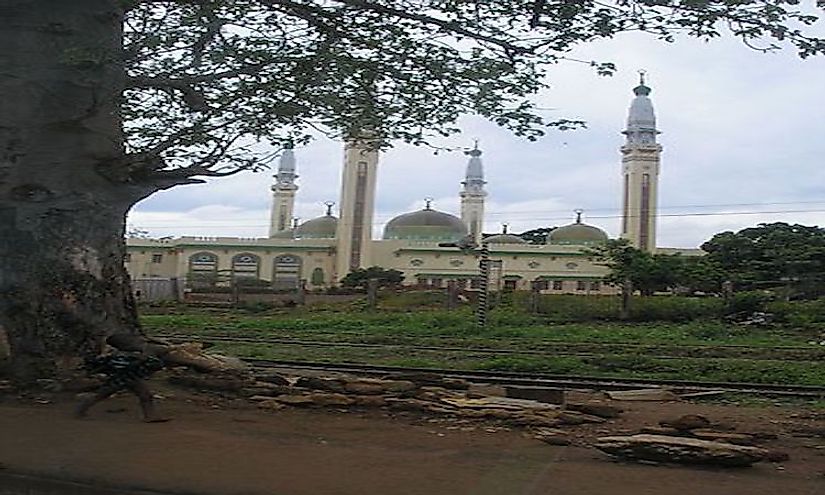Religious Beliefs In Guinea (Conakry)

Guinea has a population of slightly over 10 million people with 24 ethnic groups. There is freedom of religion in Guinea although Islam is the dominant religion demographically, socially, and culturally. Over 85% of the population in Guinea is Muslim while 10% follow various forms of Christian faith. The remaining 5% adhere to traditional indigenous beliefs. An insignificant number practices Hinduism, Buddhism, and Baha’i faith. Traditional Chinese religion is also common, especially among the expatriate community. There is no record of atheist or the irreligious groups in Guinea. However, there are very few people who ascribe to more than one religion, one as a family religion.
Religious Beliefs In Guinea (Conakry)
Islam
Islam is the main religion in Guinea with an estimate of 85% of the country’s population. Most of the Muslims in Guinea are Sunni who follows the Maliki tradition and Tijani Sufi order. Islam found its way to Guinea from its birthplace in Arabian Peninsula through the Mali Empire which encompassed the present-day Guinea. Fouta Djallon has been Islam’s stronghold since the 17th century. A Muslim theocratic state was found in the highland regions of Fouta Djallon in 1725. An Ahmadiyya movement was introduced into Guinea in the 20th century by the Pakistan Muslims who settled in the country. However, after Guinea attained independence, President Toure attempted to reduce the influence of Islam in the country. The decline in his popularity forced him to adopt the Muslim institutions which also led to the construction of the Grand Mosque in Conakry. The Islam in Guinea has great influence on culture and social practices in the country. There are numerous Islamic institutions including schools and hospitals in the country.
West African Animism and Folk Religions
Before the arrival of the Arab traders who brought Islam with them, Traditional African Religion was a major practice throughout the country. Currently, only 10% of the population still practices Animism which is a form of traditional worship. Most of the ceremonies are accompanied by divinatory rites and meditations. Animists in Guinea also believe and pray to spirits and ancestors. The spirits are intermediaries between human and gods. In the case of a disaster, the community offers sacrifices to their god to appease the spirits and avert the wrath. The folk religion is common in rural villages and not popular in cities and towns.
Christianity
The Christian groups in Guinea include Roman Catholics, Protestants, evangelicals, and Seventh-Day Adventists. About 6% of Guineans associate with Christianity. The majority of Christians are from the Kpelle ethnic group. The country has 235 organized churches, 150 unorganized churches, and over 1000 pastors. Conakry has the highest number of churches in the country. Most of the Christian denominations are involved in missionary work and evangelism throughout the country. Evangelism is slowly bearing fruit with more conversions to Christianity. However, Christian in some parts of Guinea have faced opposition while some have been killed by the Muslim neighbors as it was witnessed in 2013.
Religious Freedom In Guinea
Guinea is a secular state with the citizens enjoying equality regardless of their religion or belief. Anyone has a right to choose, change, and practice religion of their choice. The Department of Religious Affairs in Guinea promotes religion tolerance and relations. The department appoints directors to lead the offices of various religious affairs. The administrative staffs of the Grand Mosque in Conakry are government employees. The country observes several religious holidays including Easter, Birth of Prophet Muhammad, and Christmas among other holidays
Religious Beliefs In Guinea (Conakry)
| Rank | Belief System | Share of Population in Guinea |
|---|---|---|
| 1 | Islam | 85% |
| 2 | West African Animism and Folk Religions | 9% |
| 3 | Christianity | 6% |











